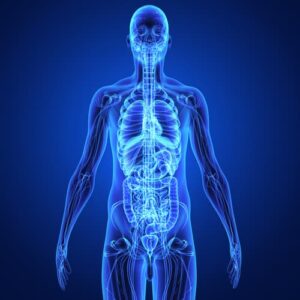
Excessive alcohol use can have severe and lasting effects on the liver, leading to conditions like fatty liver disease, alcoholic hepatitis, and cirrhosis.
However, the liver is a resilient organ; with the right steps, it can heal and recover.
Understanding the connection between alcohol use disorder (AUD) and liver damage is the first step toward recovery.
If you or a loved one is struggling with alcohol use disorder, The Raleigh House offers comprehensive treatment programs to support your recovery.
Contact our admissions team or continue reading to learn more about how you can heal your liver and overcome addiction.
How Alcohol Damages the Liver
When you consume alcohol, your liver breaks it down into acetaldehyde, a toxic substance and known carcinogen. Acetaldehyde is further metabolized into acetate, which is eventually broken down into water and carbon dioxide.
Excessive drinking overwhelms this process, leading to the buildup of toxins and fat in the liver.
Stages of Alcohol-Induced Liver Damage:
- Fatty Liver Disease: The earliest stage where fat accumulates in the liver. Often asymptomatic, but reversible with abstinence and lifestyle changes.
- Alcoholic Hepatitis: Inflammation of the liver that can cause symptoms like nausea, abdominal pain, and jaundice. Severe cases can be life-threatening but are often reversible with immediate intervention.
- Cirrhosis: The most advanced stage, where scar tissue replaces healthy liver tissue. This damage is often irreversible and may require a liver transplant.
Steps to Heal Your Liver After You Stop Drinking
- Stop Drinking Alcohol: Total abstinence from alcohol is the most crucial step. Continuing to drink will only worsen liver damage.
- Adopt a Healthy Diet: A nutrient-rich diet supports liver regeneration. Focus on foods high in antioxidants, such as berries, leafy greens, and green tea. Staying hydrated is equally important.
- Lose Excess Weight: Obesity compounds liver damage. Quitting alcohol aids weight loss by cutting unnecessary calories, reducing liver strain.
- Exercise Regularly: Physical activity improves immune function, helps control weight, and supports overall liver health.
- Limit Exposure to Toxins: Reduce exposure to environmental toxins, avoid smoking, and be cautious with household chemicals. Your liver filters toxins, so minimizing exposure is essential.
- Follow Medical Advice: Regular check-ups and monitoring of liver enzymes are vital. Depending on the severity of liver damage, your doctor may recommend medications or additional treatments.
Overcoming alcohol use disorder often requires professional support. The Raleigh House offers both inpatient alcohol rehab for intensive care and intensive outpatient treatment (IOP) for those needing flexibility while receiving comprehensive support.
Comprehensive Alcohol Addiction Treatment at The Raleigh House
At The Raleigh House, we understand the complex relationship between alcohol use and liver health. Our team is here to help individuals safely stop drinking and address the underlying factors that contribute to alcohol use disorder.
We offer a whole-person approach to treatment, combining medical detox, evidence-based therapies, and nutrition-focused care to support physical healing and long-term recovery.
Our team works closely with each client to develop a personalized treatment plan that includes:
- Medically supervised detox to manage withdrawal symptoms safely.
- Individual and group therapy to explore the root causes of addiction.
- Nutritional support to help restore liver health and overall well-being.
- Experiential therapies that promote emotional healing and stress management.
- Ongoing aftercare planning to support long-term sobriety.
Two Locations, One Mission for Your Recovery:
- The Ranch at The Raleigh House: Located in Watkins, CO, this inpatient facility provides a serene setting for healing, with comprehensive therapies, nutrition support, and round-the-clock care.
- The Center for Integrative Behavioral Health: Located in the Denver Tech Center, our newest facility offers the same clinical excellence and unique healing experiences for trauma, mental health and addiction. It’s an excellent setting as well for those individuals needing physical accessibility support in a beautiful and nurturing environment.
Alcohol-related liver damage can be serious, but recovery is possible. Whether you’re in the early stages of fatty liver disease or facing more advanced conditions, quitting alcohol and seeking professional support can make all the difference.
Call The Raleigh House today at 720.891.4657 or contact us online to begin your journey toward recovery and liver health.

